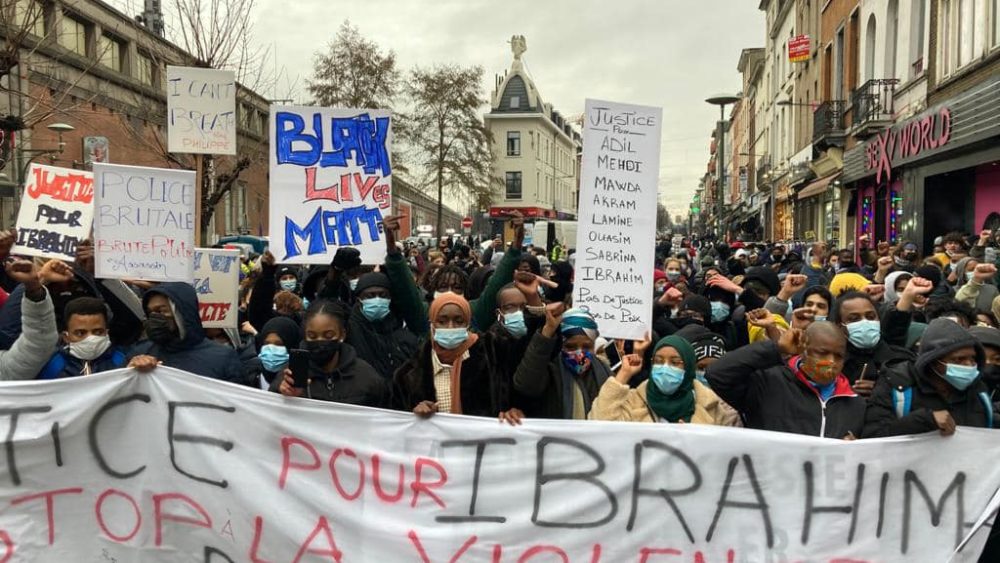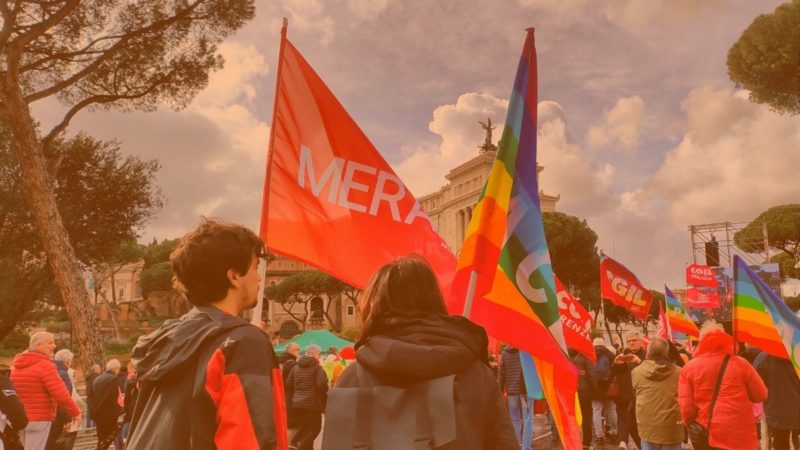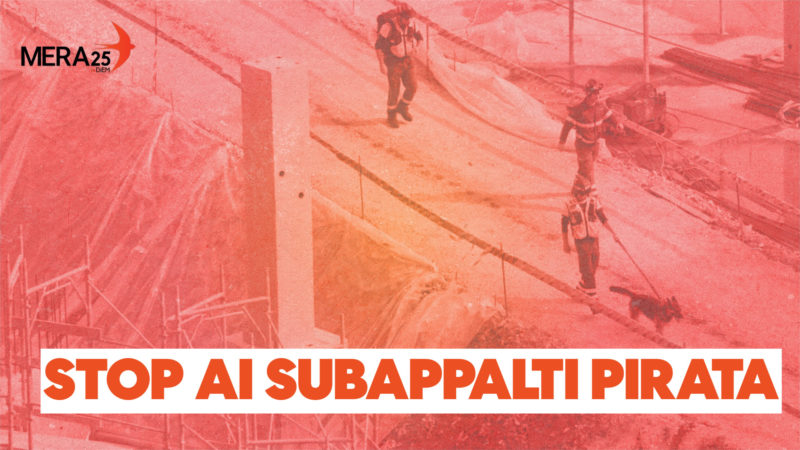On 9 January 2021, a 23 year old named Ibrahima died in police custody after he filmed a corona control near the Brussels North station. Reports indicate that he was not drugged, as was initially indicated or hinted to by the police, playing with prevalent stereotypes in disgrace of the victim’s dignity. Neither is there certainty about whether he was beaten. The autopsy result indicates heart failure as a cause of death. This event and the neighbourhood in which it took place are culmination points of the tragedy that we collectively are going through.
East of the North station, Schaerbeek borders Saint Josse-ten-Noode, the poorest commune in Brussels. The street next to the station features a red light district, while one street further features a bazaar that sells almost anything from workshops in northern Africa and around the globe. West of the North station, there are skyscrapers with headquarters of banks, telcos and energy providers. But one of the World Trade Center buildings also houses the general directorate of Belgium’s foreigner’s office, and nearby Parc Maximilian was until shortly the site of a refugee camp that was regularly evicted.
Here when a banker in a suit walks by a homeless refugee at North station, power and wealth collide with the sordid misery which their ever-accelerating accumulation by a few produces for the many. And here, where the most powerful meet the most fragile, young Ibrahima lost his life.
It is a heinous question whether his life could have been saved if he had not been left unattended in critical state during custody at the police station, because any attempt to answer it would silently acknowledge that his detainment was justified in any way. Put the other way round: Had the police not decided to pursue Ibrahima, he would probably still be among us.
Ibrahima did nothing wrong — all he did was film a corona control
But while filming the authorities is not a crime, it is often de facto punished by the authorities, because they perceive it as a threat.
Being under scrutiny is new for law enforcement agencies. For the first time in history people have the technological means to effectively watch the watchmen. And this capacity threatens authoritarian undercurrents in our formally egalitarian and democratic societies, which flow strongest wherever law and order is concerned. The natural reaction seems to be the suppression of inquiries.
Thus the political fight about the right to use data-driven technologies to exercise democratic control is currently under attack in a variety of places.
Take, for example, the Assange process where an old wartime law is being used to vanquish a journalist who quite responsibly published video proof of war crimes. Or the french governments’ attempt to potentially criminalise any recording of law enforcement authorities. Or Frontex’ lawfare against freedom of information inquiries. But by far the most frequent cases are police officers in the street who, when confronted with being filmed, may resort to unlawful and presumptuous conduct.
In this case, sanitary measures served as a pretext to pursue someone who filmed a police control and the result was a premature death.
Let me put it here very clearly that I am not accusing individuals who are doing a difficult job. The underlying problem is of an institutional nature, and needs institutional solutions. Sensitisation and continued education of law enforcement agents is as necessary as a functioning judiciary in establishing a peaceful society.
It is not a coincidence that the victim is a person of colour
The North station area has a history of racist police misconduct that has incidentally become visible to the public when Pirette Herzberger-Fofana got brutalized by the police after she filmed a police control there. Law enforcement agents were not able to grasp that somebody bearing several markers of the socially faible, having dark skin and being a woman, could be what she was: a member of the European Parliament.
Furthermore, in the wider Brussels area there have been a number of police-related deaths of young people, which the community remembers very well. The last one was Adil, who died during the first lockdown after a police car wittingly crashed him during a chase. Their names are written on the walls across town, and signs with the names of half a dozen victims are present at every demonstration; so too at the protests following Ibrahima’s death.
These protests opened another act of the tragedy: after a peaceful protest of 500 had dissolved about one hundred rioters set a police station ablaze and wounded four members of the police. Over 100 arrests have been made. The king’s security forces couldn’t help but drove the king by, so he could also have his share of the spectacle.
While I understand the anger fueling these protests, resorting to violence is awfully wrong. It only helps the haters, who will happily add their spin of Brussels as a hell-hole full of migrant violence throwing stones at the king’s convoy and will gladly use images of a justified protest to propagate hardline politics against society’s’ most vulnerable and to reinforce their divisive us-against-them narrative.
All of this happened in my neighborhood, in Brussels, in ‘Europe’s capital’. But basically it’s the same story that in some variation is happening regularly throughout Europe and at our borders. We must not allow these incidents to go unnoticed and the police force must do better in order to address systemic racism.
What’s left for us is to mourn the victims, and the duty to fight for a different tomorrow without tragedies like these.
If we in Europe, born of conflict, have one mission, it has to be this: to achieve peaceful coexistence.
Photo Source: Belgian Network for Black Lives on Twitter.
Angelo Radmüller is a member of the National Collective of DiEM25 in Belgium, a stay at home dad and immigrant living in Schaerbeek, Brussels.
The views and opinions expressed here are those of the author and do not necessarily reflect DiEM25’s official policies or positions.
Do you want to be informed of DiEM25's actions? Sign up here




